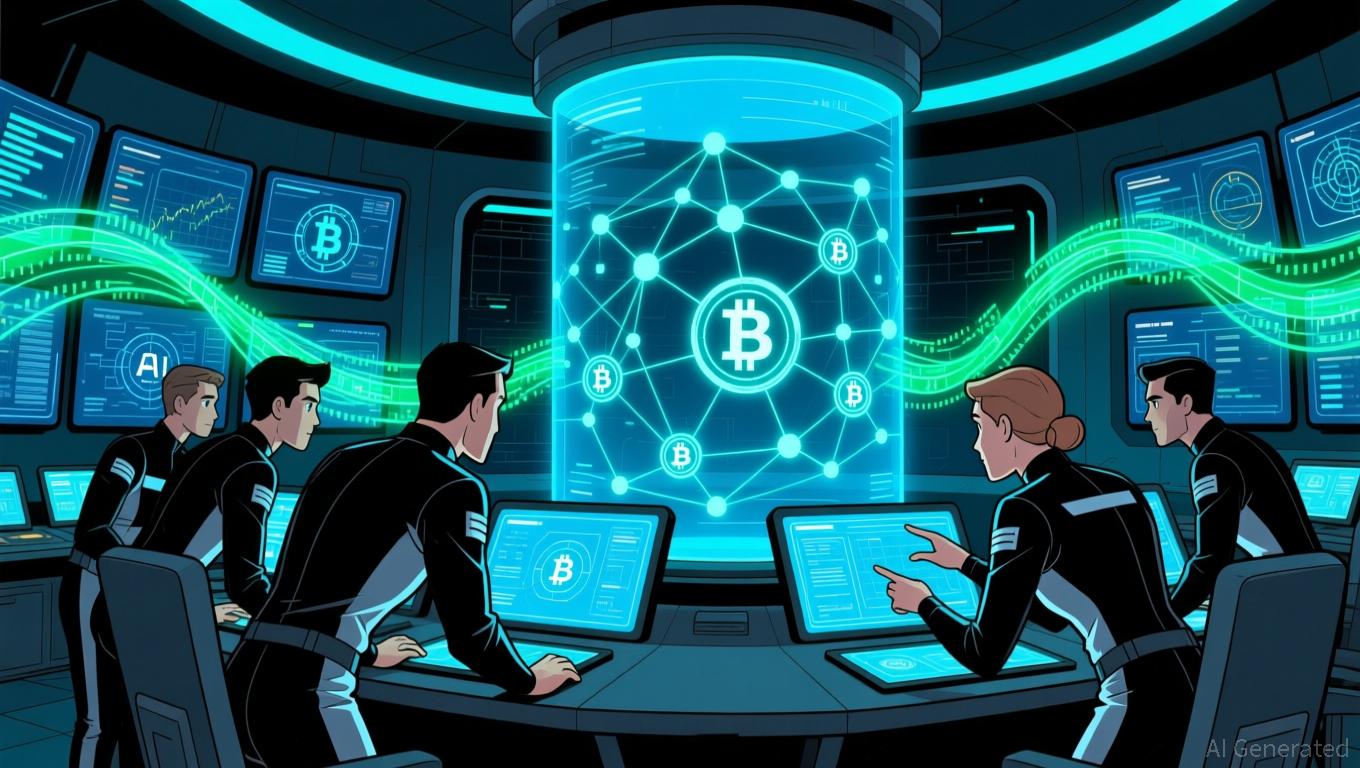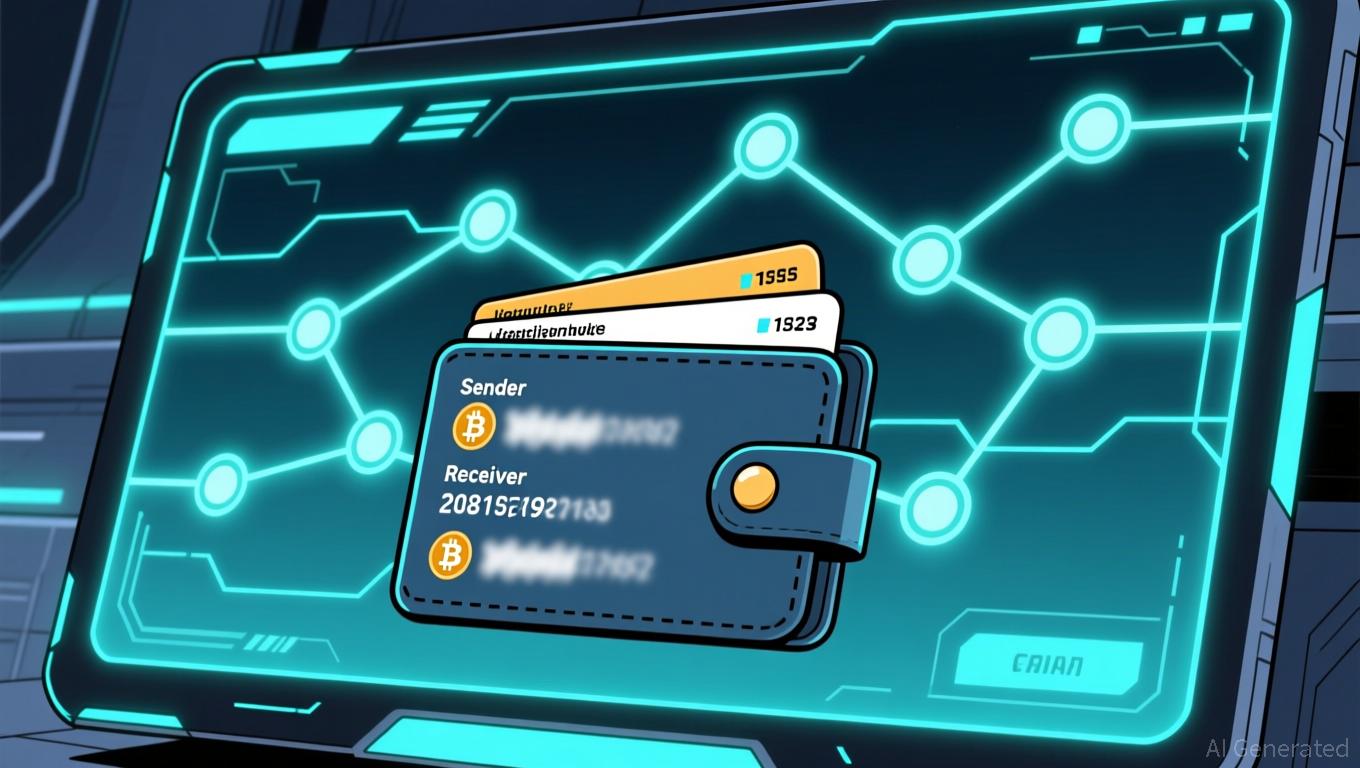Ethereum News Today: High TPS, Low Confidence: Monad's Debut Sparks Decentralization Debate
- BingX, a top crypto exchange, listed Monad's MON token, offering zero-fee trading amid mixed market reactions to its below-expected $0.02417 debut price. - Monad claims 10,000 TPS and EVM compatibility through innovations like parallel execution, but faces skepticism over its 27% team token allocation and decentralization concerns. - The token's $105M airdrop and 38.5% ecosystem allocation highlight growth focus, though users criticized low utility and small allocations in the 3.3% mainnet distribution.
BingX, a prominent player in the crypto exchange sector, is among the earliest platforms to introduce Monad (MON), the core asset of a high-speed
MON's debut on the market has been inconsistent. Soon after launch, its price hovered near $0.02417, slightly under the $0.025 sale price on Coinbase's Token Platform, and saw a moderate $50 million in trading volume during the first 100 minutes—a notable difference from the
Despite a subdued start, Monad's technical features make it a strong candidate in the Layer 1 arena. The blockchain asserts it can handle 10,000 transactions per second (TPS) with near-instant finality and minimal fees, utilizing advancements like parallel processing, the MonadBFT consensus, and RaptorCast networking

MON has quickly gained traction on other exchanges, with HTX and WEEX also listing the token. BingX's zero-fee offer, available until December 1, is intended to draw more traders and liquidity, while Coinbase's public sale—raising $187.5 million—demonstrates significant institutional backing
Looking forward, Monad's trajectory will depend on how widely its ecosystem is adopted. Projects such as Kuru Exchange and aPriori are already developing on Monad, and its emphasis on scalability could make it a rival to Ethereum and
Disclaimer: The content of this article solely reflects the author's opinion and does not represent the platform in any capacity. This article is not intended to serve as a reference for making investment decisions.
You may also like
Bitcoin Updates: IMF Warns of Widespread Risks Amid Growing Popularity of Tokenized Finance
- IMF highlights tokenized finance's efficiency gains but warns of systemic risks like smart contract interdependencies and liquidity vulnerabilities. - Upcoming Chainlink ETFs signal growing institutional adoption, with Grayscale and Bitwise advancing regulated exposure to $100B+ oracle network assets. - Analysts predict over 100 new crypto ETFs in six months, but XRP's 18% price drop underscores market volatility despite regulatory approvals. - IMF anticipates regulatory frameworks to address cross-platf

South Korea's Revamped AML Framework: Is It Possible to Balance Security with Innovation?
- South Korea's FSC overhauls AML rules to tighten crypto transaction oversight, targeting transfers under $680 and expanding pre-emptive freezes. - The crackdown follows Upbit's $30M hack linked to North Korea, prompting tax authority raids and blockchain tracking for evasion cases. - AI-powered monitoring flagged 200 suspicious accounts in 2 months, balancing automation with manual audits to detect illicit patterns. - Global enforcement remains fragmented as South Korea pushes stricter VASP registration,

"Privacy or Compliance: The Trust Challenge for Crypto in Payments and DeFi"
- Economist Saifedean Ammous critiques crypto privacy tools like Houdini Pay, arguing centralized compliance models undermine true cryptographic anonymity. - Houdini Pay's "compliant privacy" retains metadata (wallets, IPs) despite hiding onchain addresses, contrasting with zero-knowledge solutions like zkBob. - Balancer's $116M 2025 hack exposed vulnerabilities in audited DeFi protocols, highlighting risks in complex financial primitives like stable pools. - The crypto industry faces a trust dilemma: bala
